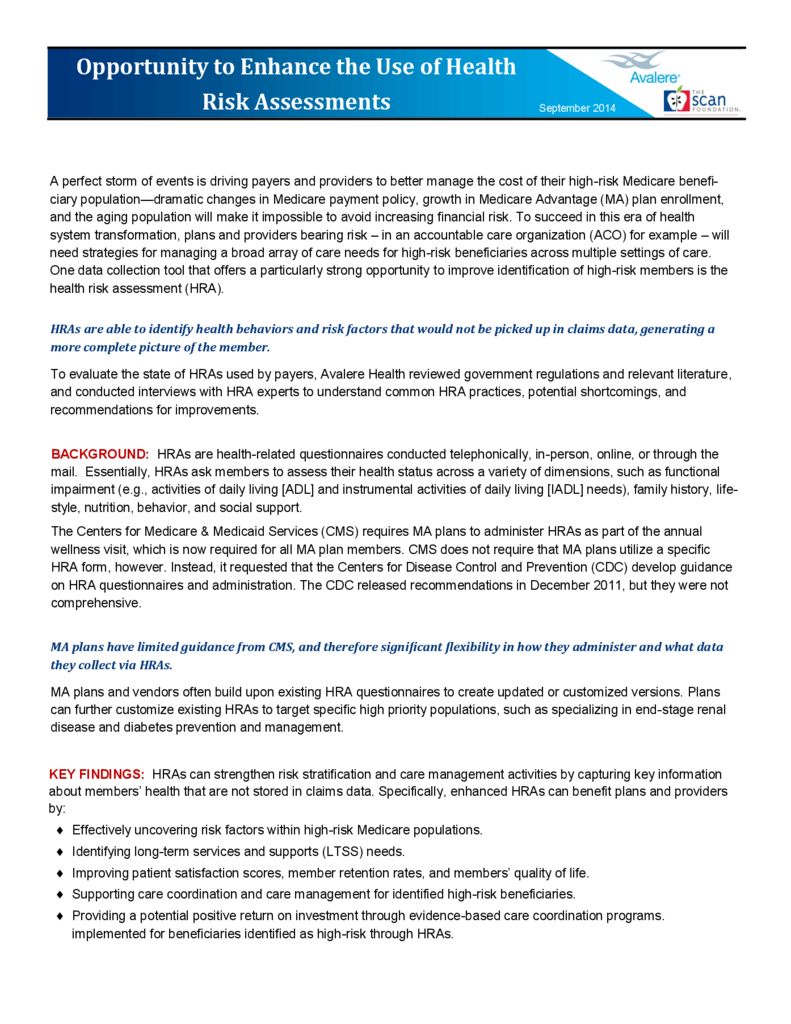Opportunity to Enhance the Use of Health Risk Assessments
summary
To succeed in this era of health system transformation, plans and providers bearing risk – in an accountable care organization (ACO) for example – will need strategies for managing a broad array of care needs for high-risk beneficiaries across multiple settings of care. Download this fact sheet to learn more.
Date Updated: 09/01/2014A perfect storm of events is driving payers and providers to better manage the cost of their high-risk Medicare beneficiary population—dramatic changes in Medicare payment policy, growth in Medicare Advantage (MA) plan enrollment, and the aging population will make it impossible to avoid increasing financial risk. To succeed in this era of health system transformation, plans and providers bearing risk – in an accountable care organization (ACO) for example – will need strategies for managing a broad array of care needs for high-risk beneficiaries across multiple settings of care. One data collection tool that offers a particularly strong opportunity to improve identification of high-risk members is the health risk assessment (HRA).
HRAs are able to identify health behaviors and risk factors that would not be picked up in claims data, generating a more complete picture of the member.
To evaluate the state of HRAs used by payers, Avalere Health reviewed government regulations and relevant literature, and conducted interviews with HRA experts to understand common HRA practices, potential shortcomings, and recommendations for improvements…
Download the publication for all visuals and complete references.
Continue Reading
This policy brief provides an introduction to The SCAN Foundation’s CLASS Technical Assistance Brief Series, which explores many of the critical issues to be considered for successfully implementing CLASS.
This policy brief describes the broad needs of individuals with disability and the wide range of supportive and environmental solutions that can allow for the most independent living possible. It suggests how findings on social and environmental supports for individuals with disability can inform implementation of CLASS.
This policy brief provides background on the historical development of benefit eligibility triggers in the private long-term care insurance market. Understanding how these triggers came into being can provide important information to those charged with implementing the CLASS Plan.


